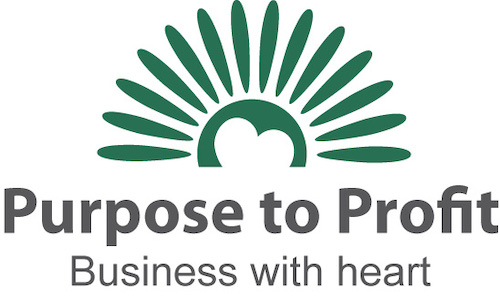If your career or business isn't working out, the power to change the outcome may be in your hands. Check your values and beliefs.
So often, when something isn’t working out, we look externally for the cause. Perhaps the market wasn’t ready … too competitive … not willing to invest in themselves … too busy living in the now to think about the future … that sort of thing.
Or if we realise we have some of the responsibility at least, we may look at our own behaviours to see if we DID something wrong.
Both those approaches have value.
However, the greater value, in my experience, lies in questioning our own mindset which creates the way we see the world, how we behave and ultimately, the results we achieve.
What is your mindset?
According to Information Theory, we’re exposed to 11 million bits of information in any moment. We can’t possibly pay attention to that amount of information, so our incredibly efficient body/brain uses a filtering process to determine what we’ll pay attention to.
11 Million bits are reduced to about 5-9 that we can consciously pay attention to.
The filters that determine how you’ll perceive the world around you are predominantly the values, beliefs and attitudes. They sift the information you’re exposed to, selecting what’s important in order to grasp the situation and deleting what isn’t important; distorting information to fit with your existing perception of reality and generalising – or ‘thin-slicing’ as Malcolm Gladwell calls it – to make meaning from a small amount of information.
These cognitive shortcuts lead to a significantly narrower view of reality.
To make this more tangible …
Imagine all the 11 million bits of information make up a 5,000 piece jigsaw puzzle. Your perception of reality is the rough equivalent of 1 piece.
So one piece of the jigsaw puzzle produces a perception of reality that leads to behavioural choices which, in turn, lead to outcomes.
Understanding that we eliminate most of the information we’re exposed to also challenges some of the limiting mindset patterns we engage in: striving to be perfect; holding ourselves and others to impossibly high standards and allowing our harsh judgement to diminish our esteem and confidence.
If we accept that we don’t have a hold on the full picture of reality, that our piece of the jigsaw puzzle is likely to be different to anyone else’s, that their piece of the jigsaw puzzle is equally valid to them as yours is to you, perfection and judgement of right or wrong simply don’t make sense in the human experience.
Far better to let go of perfection as an impossible task master and to drop right or wrong, replacing both with curiosity and possibility thinking.
The questions then become qualitative. Is the way I see the world – myself, other people, situations I’m exposed to – useful or not? Do I cripple myself with perfectionism or embrace continual growth and improvement? Does my mindset produce the outcomes I want? Do I recognise my own value? Do I appreciate other people? Do I interpret situations in ways that are constructive? What could I achieve with a ‘different’ mindset? You get the picture.
Assessing your mindset
The key filters of our experience are Values and Beliefs. Values are our priorities. They’re what we consider to be most important in allocating our finite resources: time, money, attention. Beliefs are statements to ourselves about what we believe to be true. We arrive at these beliefs via the decisions we made about how we and the world around us operate when exposed to similar situations earlier in our lives.
When we ask ourselves the qualitative questions referred to earlier, we are challenging our perception of reality which provides us with the opportunity to assess the value of our existing mindset and its impact on the outcomes we’re experiencing in our lives.
Is your career or business progressing the way you dream of? Are your business and personal relationships developing in a way that helps you feel connected and to live/work harmoniously? Do you recognise – and embrace – your strengths, talents, qualities and successes or do you assume everyone can do what you do at least as well and dismiss them as not being special, in the process discounting your value? Do you consider yourself worthy of success?
If you answer ‘hmm not sure’ or ‘no’ to any of those example questions, your mindset is not supporting you as it could.
You may make the decision that you can’t do anything about it or you may realise you have the power to shift your mindset so it leads to more productive behaviours and better outcomes.
Figuring out what needs to shift
If our mindsets are typically unconscious, how do we know what needs to change?
Many processes are useful in surfacing our values and beliefs to form a picture of how we see the world. One that I find particularly useful with my coaching clients is to track back from the outcome to identify what created it:
1.What was the situation that occurred? Reconnect with it. Play it over in your mind.
2. Unpack it. Separate the objective situation from the meaning you attributed to that situation. The objective situation is what occurred that all people in attendance – with their different jigsaw puzzle pieces – would agree on.
- He walked in the room and slammed the door.
- She was talking on the phone.
- They weren’t at their desk when I came looking for them.
- He/she didn’t get home until 11:30 pm.
These are the objective ‘facts’.
3. Identify the Gap between the objective situation and the outcome. This is your interpretation and the behaviours that led to your outcome.
Using the same examples of objective situations:
- Something must have happened before he got here / He was angry with me. I must have done something to upset him.
- She’s creating great client relationships / She’s gossiping and wasting time.
- They took off for their break at the same time / They’re up to something. They knew I was looking for them.
- He/she must have got caught up / He/she is having an affair.
4. Squeeze the Juice. The juice lies in understanding why you interpreted the situation in that way. What must you value and believe for that to have been the way you interpreted a neutral situation?
Once you’re aware of what is driving your behaviour, you can consider whether your values align with your true priorities and whether your beliefs serve you or not.
The power is in your hands. And having taken the power, you can eliminate the barriers to your success, shape your behaviours and your external environment, leading to the success outcomes you dream of.


